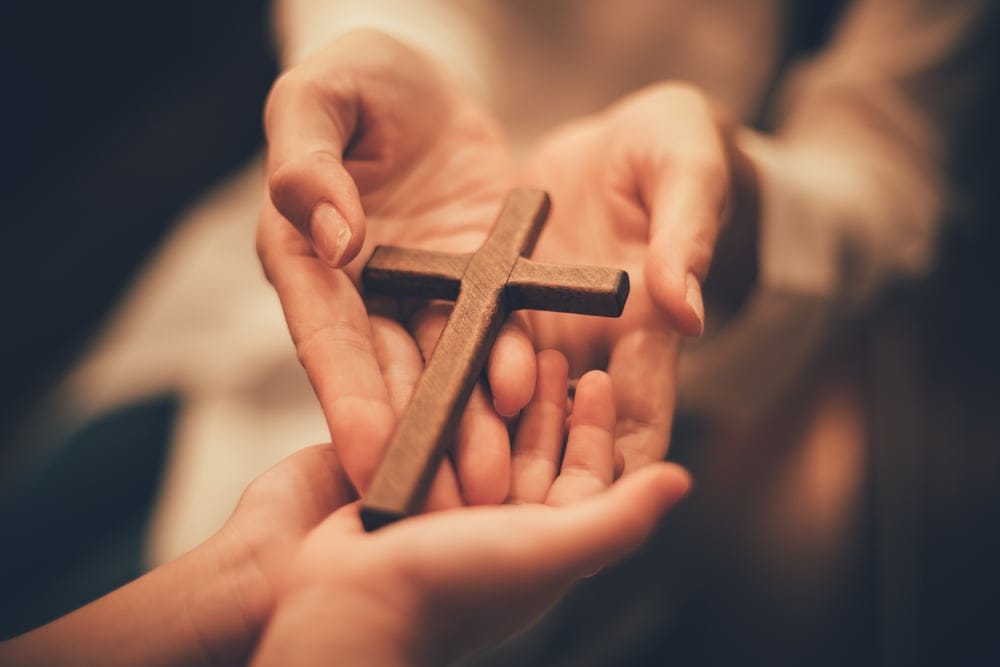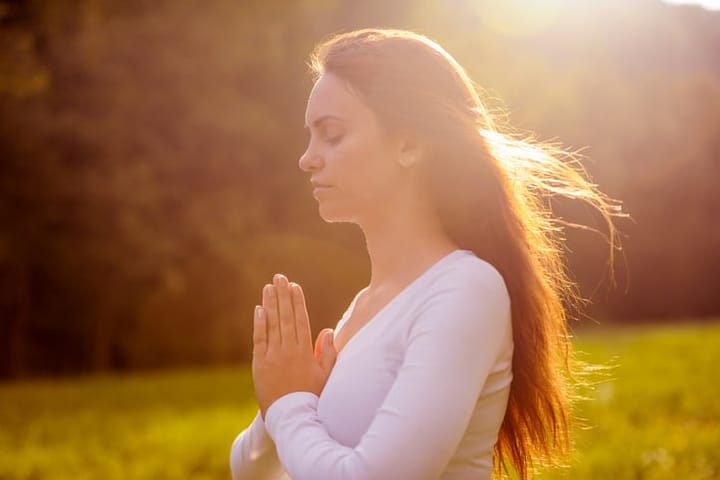Whether or not you choose to believe in a higher power, you want to live your life as a good person who cares about others and treats them well. But, the big question is: Do you have to believe in God in order to be an authentically good person? Or, is that faulty thinking? Here are some things to consider.
1. Theory: God has to exist for goodness to exist.

On a basic religious level, it’s thought by some people that it would be impossible to be a good person without the existence of God. Since God created morals and ethics, this means that without Him, there wouldn’t be the opportunity to live a good, moral, and charitable life.
2. That doesn’t mean believing in God is necessary, though.

Although some believers would agree with the idea that morals can’t exist without the presence of God who created them, does this mean people have to believe in God in order to have those morals? Not necessarily! It sounds wild, but think about it: God exists whether or not people believe in Him. That means morals also exist.
3. God has taught humankind how to live in love.

Another idea that believers in God would agree with is that we only learned how to be good people because God taught us the guidelines for love. We see this in the Gospels, with God showing us the way, truth, and light.
4. Believers agree that God prepared us to do good works.

There’s a quote from Ephesians 2:8-10 that states, “For we are God’s handiwork, created in Christ Jesus to do good works, which God prepared in advance for us to do.” This is intriguing because it means that whatever is good on earth has already been created and given to us by God. Again, this points to how we can’t have goodness without Him.
5. There’s a connection between good deeds and the promise of an afterlife.

Some people who believe in God might put effort into living well and being good because they believe when they die they’ll be rewarded. This can be a strong motivator for people to live in line with God’s teachings. Without those teachings, they might not feel inspired to live a good life.
6. Believing in God gives people a community that encourages good deeds.
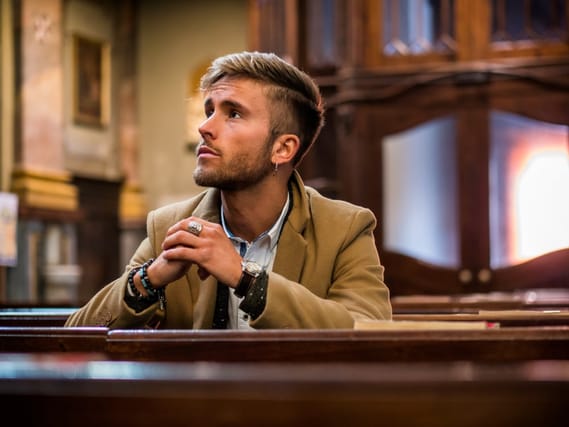
Having a strong belief in God isn’t just about nurturing a personal relationship with Him. It’s also about connecting with a community of fellow believers who can encourage each other to live in a positive way in accordance with God’s will. In this way, belief in God is what shapes one’s good deeds.
7. Good deeds express one’s love for God.

Lots of believers try to live in a moral way, such as by getting involved in charity work and doing good deeds for others, because this is what helps them to express their devotion to God. In this way, they might feel like their belief and dedication to a higher power is essential for being kind to others.
8. Personal morality is faulty, so we need God to keep us on track.

If people depend on their own moral code to live a good life, this can be risky. It can change over time or negative experiences can make it wobble. Therefore, some might say that we need God to stay on track with pure, genuine morality. During tough times when we’re filled with darkness and negativity, reaching for God’s teachings can help us to continue being good people.
9. But, many people don’t believe you need God to be good.
In a study conducted by Pew Research, 45 percent of participants stated that having good values requires a belief in God. However, 51 percent of people disagreed. This is interesting, because of the next points.
10. Religion doesn’t make someone good.
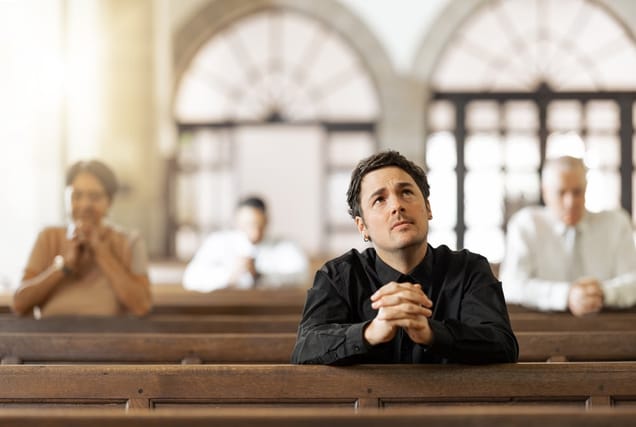
Just because someone has a strong faith and belief in God, this doesn’t mean that they’re necessarily a good person! So, although they believe in God, they might not be living in accordance with His rules and guidelines. The opposite is also true: Just because someone doesn’t believe in God, it doesn’t make them a bad person!
11. We learn goodness throughout life.
There’s a debate over whether or not we’re born with certain personality traits that affect our goodness. Are we given these traits or are they learned as we deal with others and experience life? Either way, our values and ethics can be influenced by many other things than religious ideas.
12. We have free will to choose how we live.

We learn how to be a good person in various ways, like from our parents’ influence and the experiences that shape us. But, no matter what we learn, we get to choose how we live and treat others. We determine the meaning of our life because we have free will to make our own decisions. Because of this, one could say that the most important factor that determines if we’re good people or not comes down to our choices, not a higher power.
13. Good deeds are linked to empathy.
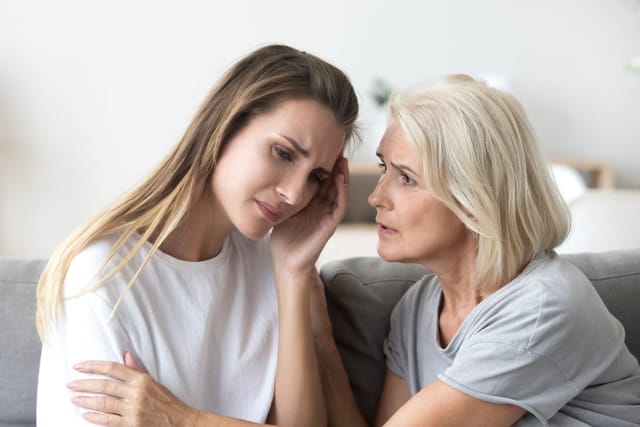
Some people have tons of empathy, whereas others lack the ability to feel other people’s emotions. Empathy is a huge part of being a good person, such as when it comes to helping others and understanding the hardships that they’re going through. Although religion can help us learn empathy, it’s something that we experience in life or learn from other people.
14. People don’t need faith to love others.

The thing to remember is that people don’t have to believe in a higher power in order to follow the basic rules of being kind. Compassion for others, building connections with others, and loving people are common human experiences everyone goes through, regardless of one’s belief in God.
15. It doesn’t take much effort to be a good person.

You don’t have to do much to be seen as nice to others! Seriously. With basic respect, politeness, and kindness, you can be a positive, good person. You don’t necessarily need the motivation of a higher power and the promise of eternal life to make you choose to live in this way. That’s the thing: Goodness is always a choice.
